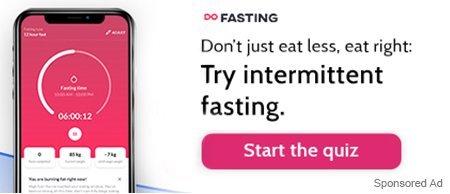Vitamins While Fasting | Gummy Vitamins and Fasting | Vitamins and Minerals During Fasting | Drinks that Don’t Break a Fast
Do Vitamins break a fast? Lets find out! As people become more inclined towards maintaining their health, they are more than keen to try out different types of intermittent fasting solutions, vitamins, proteins, and mineral supplements.
But there is an understandable concern on whether it is right to consume vitamins and supplements during the fasting intervals or does taking vitamins break a fast.
Do Vitamins Break a Fast?
Short answer is NO. However many supplements contain sugar, fillers, oils, calories, carbs, etc. Gummy Vitamins also contain lots of sugar. Be careful to read the label before taking any vitamins while fasting.
Many believe that vitamins and multivitamins are calorie-free and can be consumed during a fast. However, several components present in these supplements may not be ideal for having during a fast. So essentially, it depends on what kind of vitamin you’re taking on whether it breaks your fast or not. This is what we will look into in this article.
While fasting, you might feel that it is essential to take vitamin supplements so that the cells in your body are well regulated, which would help in its proper functioning, but it can be counterintuitive.
To understand this phenomenon, we need first to study how the body responds to a fast.

How Does the Body Respond to a Fast?
To understand it better, we must know what generally happens to the body while fasting. As the body is deprived of calories during fasting, it naturally turns to the stored endogenous compounds, mainly the stored fat.
The body will further break down these fat molecules to fulfill its natural energy requirement. It will also regulate the nutrient levels required for proper cell functioning. The body has specific stored fat-soluble vitamins, and during fasting periods, these are aptly utilized.
Hence, it is generally not necessarily required to take vitamins during fasting. But there is more to your question relating to will taking vitamins break my fast, which we will explain in a bit.

Do Vitamins break a fast?
Another reason to avoid certain vitamin supplements during fasting is that some vitamins are fat-soluble– Vitamins A, D, E, K, and certain multivitamins like Omega 3. It means they are not soluble in water and are only advised to be taken with food.
So even if you have multivitamins during fasting, which are calorie-free, all their essential components are not well absorbed in an empty stomach. There is no point pondering on do multivitamins break a fast.
It has been proven that avoiding certain vitamins during fasting periods helps the body better absorb the vitamins when they are reintroduced to the body, as our body is highly adaptive. It can readily perceive a nutrient deficiency, and it will adapt itself to absorb nutrients in the future better.
How About Gummy Vitamins and Fasting?
So, do Gummy Vitamins break a fast? the answer is certainly a yes, since anything that activates the liver would break the fast.
These sweetened vitamins are made of gelatin or gelatin capsules, corn starch, sugar, colorings, and water, and have protein. Anything that has protein is not ideal to be had while fasting.
Also, the sweetness in gummy vitamins might stimulate your hunger, making it even more challenging to sustain a fast.

Vitamins and Minerals During Fasting
Water-soluble vitamins like B vitamins, vitamin C, and D are generally calorie-free. They can be consumed during fasting periods, but it is important to note that certain water-soluble vitamins, when consumed during fasting periods, can cause nausea.
Minerals and Fasting
Although it is advised to avoid specific vitamins during fasts, there are a particular group of minerals like sodium, potassium, calcium, magnesium, phosphate, and chloride, which your body needs during longer fasting sessions.
So, if you ask – does magnesium break a fast, or does calcium break a fast? No, they don’t. You can take them during the fasting window.
Pull up Your Electrolyte Content
During more extended fasting periods, a lot of stored fat and carbohydrate is burned by the body to release energy. This process uses up the stored water in the cells; this rapid water loss can lead to dehydration, nausea, and headache.
Hence it is advisable to drink certain electrolytes which contain sodium and potassium. If you’re fasting for a long period of time, consider a calorie-free electrolyte drink.
Do you want to learn more about the top intermittent fasting supplements? Check out Top 7 Intermittent Fasting Supplements And How To Use Them.

Drinks that Don’t Break a Fast
- Water- With no calories and many nutrients; hence it is excellent to drink water during fasting.
- Unsweetened Tea and Coffee – While tea and coffee contain some nutrients, many scientific studies have proven that drinking unsweetened black coffee or tea has negligible effects on fasting results.
- Lemon Water – Although it can be argued that lemon water has some calories, it is allowed during fasting periods.
- Electrolytes – Electrolytes are essential supplements for fasting, as long hours of fasting can deprive the body of important electrolytes like sodium, potassium, and zinc. Hence, it is advised to have some electrolytic supplements, which are non-caloric, during fasting periods.
- Water-Soluble Vitamins – like Vitamin B and C.
- Apple Cider Vinegar- Some people found having 5-10 ml of apple cider vinegar in water helps in reducing hunger pangs while fasting.
- Creatine- This supplement is used by athletes for elevating performance, is calorie-free, and can be consumed during a fast.
When practicing intermittent fasting, what to drink is a common concern for beginners. Here’s a quick guide on what can you drink during intermittent fasting to help you make the most of your intermittent fasting plan.
The Bottom Line
It’s always good to supplement with vitamins if you are lacking any essential nutrients in your diet. From personal experience, avoid any vitamins on an empty stomach that are not whole food or designed to be taken on an empty stomach, or nausea can follow!
Do Vitamins break a fast? It is important to understand the dynamics of fasting and your body’s metabolism to understand what works better for you while fasting. Though there are specific vitamins that break the fast such as gummy vitamins and others that are not recommended without food, there are a few water-soluble vitamins that you can very well have in intermittent fasting without question.
However, having an appropriate balance of minerals in the body is very important to keep away the ill effects of fasting, which could be severe at times. People complain of fatigue, nausea, and feeling of constant hunger with fasting or while taking specific multivitamins. So, it is always advised to consult a medical practitioner if you are facing any such health issues when finding supplements for fasting.
If you are trying intermittent fasting and a keto diet, you might be struggling to make your meals every day. If so, the 21-Day Intermittent Fasting Keto Meal Plan is your answer. Anyone can benefit from this meal plan, but it’s perfect for you if you prefer a low-carb, high-fat diet.











